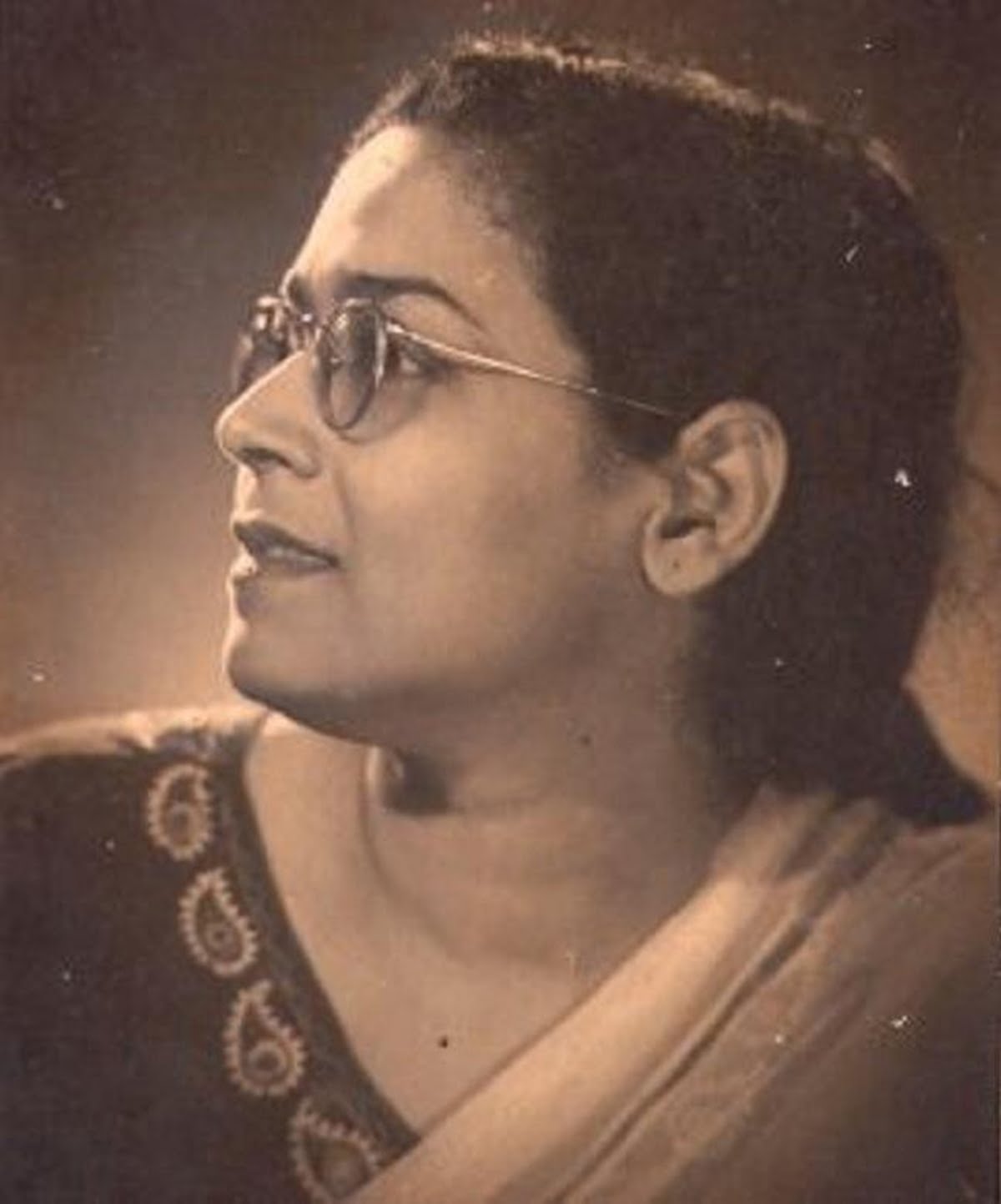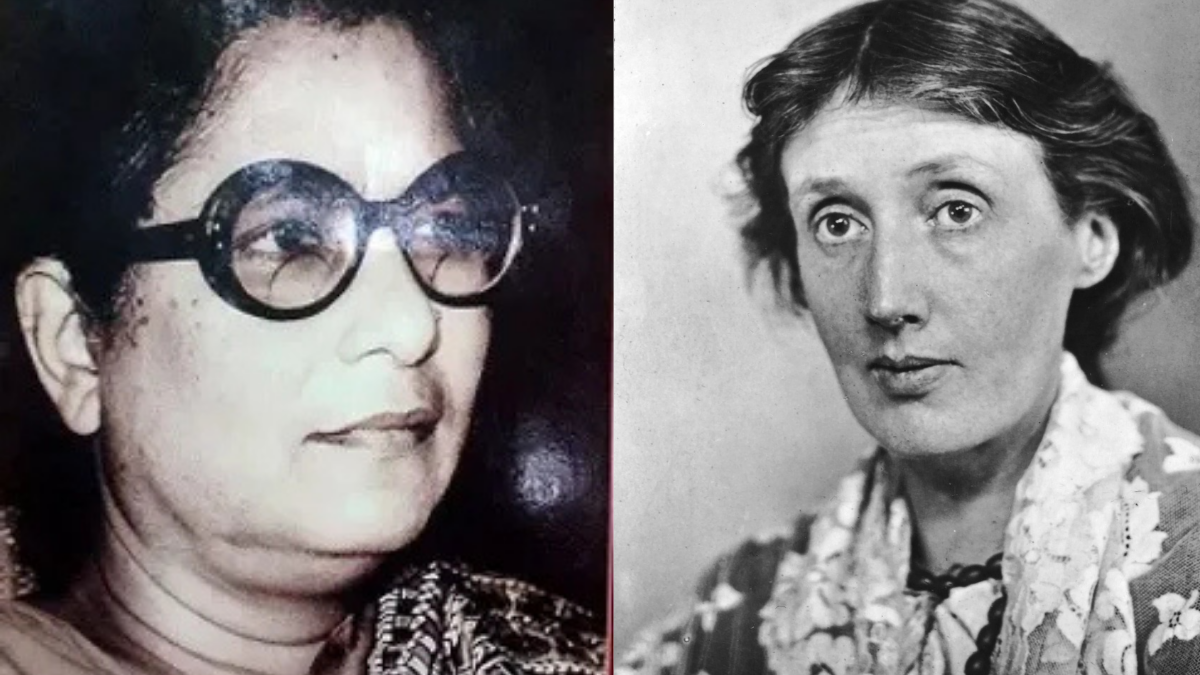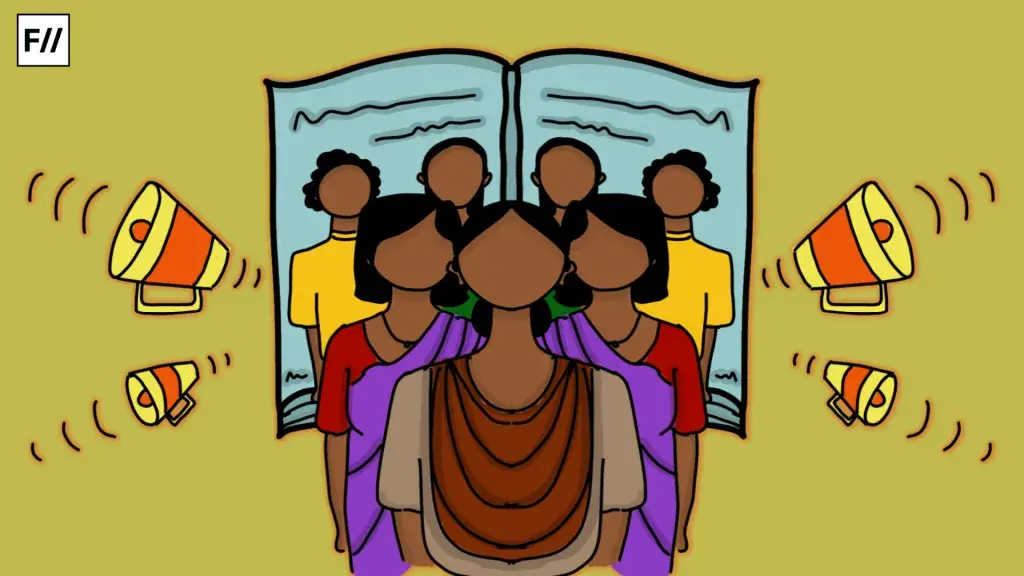Ismat Chugtai’s ‘Touch Me Not’ is a realistic account of the bleaky truth of marriage surrounding the lives of Muslim women within the household. Chugtai employs a child narrator — a young girl who provides us with a candid description of the various characters and a veracious insight into the happenings of the house. Chugtai’s child narrator is the younger sister-in-law of Bhabijan — wife of Bhaijan. The premise of the story revolves around the recurring miscarriages that Bhabijan endures and her failure of delivering a progeny — becoming a realm of her oppression. Acting as Chugtai’s mouthpiece, the child narrator in a censorious telling challenges the repressive ideas reproduced within the institution of marriage. The author explores themes of women’s conjugal obligations in middle class households, commodification of women’s bodies and their strayed agency in marital spaces.
Acting as Chugtai’s mouthpiece, the child narrator in a censorious telling challenges the repressive ideas reproduced within the institution of marriage. The author explores themes of women’s conjugal obligations in middle class households, commodification of women’s bodies and their strayed agency in marital spaces.
A vivid depiction of the episodes in Touch Me Not when Bhabijan is expecting a baby tells us the territorial entitlement that surrounds women’s bodies in which their bodies are seen as objects/sources for procreation. Hence, Bhabijan who is expecting a child is overtly provided with attention and care only to be warned off losing her ‘bridal comforts’ and the privilege of being Bhaijan’s wife following the miscarriage. The social mores assigned to biological reproduction dictated by the moral widths of patriarchy disallow women to exercise their sexual agency and bodily autonomy.
Also read: Ismat Chughtai’s Gainda And The Feminist Reclamation Of Space
Further, we understand that female sexuality has been restricted to appeasing the whimsical desires of men. Thus, we see that while Bhabijan is burned with the crushing responsibility of delivering a heir, her failure to do so would lead her to resort to prostitution in which she would again, be expected to provide ‘services’ to men. This account produced by the veritable commentary of the young narrator of Touch Me Not tells that she has a realist understanding of women’s role in society. She gives us vital clues about why pregnancy is important and conveys to us the emotional agony Bhabijan had to endure-exhibiting the anxieties around her husband’s second marriage.
Though the young narrator does not outrightly condemn the family values that inhibit women through her narration, we see that she is sharply critical and aware of the injustices meted out to women, especially Bhabijan in the household. Her narration in Touch Me Not allows us to understand that she adopts an unstated position that challenges the norms that restrain women within the house. In the story, we see the young narrator as an observer who does not actively participate in the developments of the house and yet finds herself capable of discerning the difference between right and wrong. We learn that she is less malleable and assertive unlike the women in her family.
The young narrator shares empathy in the way she understands Bhabijan. The narrator validates Bhabijan’s distress regarding the miscarriages and her apprehension towards her husband’s second marriage. While the narrator is sensitive to Bhabijan’s circumstances, at no particular instance do we see her patronizing Bhabijan. Through her telling, we observe that the young narrator is conscious of how she perceives Bhabijan’s conditions and does not assert sympathy or pity onto her. We also realize that the narrator of Touch Me Not does not approve of Bhaijan and condemns his attitude towards his wife. She mocks his snooty masculinity and pride for desiring to keep his name alive and is not oblivious of the chauvinistic pretensions of her elder brother. She is also aware of the impunity Bhaijan enjoys for being a man in, or rather of the house.
Further, the young narrator through her commentary communicates to us how women are often dehumanized and regarded as objects of beauty and appeasement. The objectification of women involves them to be considered as ‘bodies’ over other personal characteristics. Women are often denied of mental agency-able to think, feel and act on their intentions and their physical and sexual bodies are considered as sources of gratification for men. In Touch Me Not, we see how Bhaijan is inconsiderate of the hormonal and physical changes that Bhabijan undergoes post her pregnancy, and thus, no longer considers her alluring enough of his attention.
Ismat Chugtai’s Touch Me Not primarily introduces to us to the realities of women in middle class Muslim household. However, in the incorporation of the character of the ‘peasant woman’ we learn how middle class realities differ from those of the working class. Embedding a class character to the narrative, Chugtai draws upon the disparity in ‘class’ as a factor that shapes the life of women. Hence, while the story time again takes note of the sexist inclinations of Bhaijan, we do not find the use of a similar patriarchal impetus in the narrative of the peasant woman.
In her description of the process of childbirth performed by the peasant woman, we see that the young narrator in a way mystifies and assigns a transcendental character to the process. She is astounded by the sight of the peasant woman and adorns the ease with which she performed her delivery. However, while there is a sense of adornment to the narrator’s observance, it is important to note that she is less critical of the coerced conditions of the peasant woman reproduced by the class and caste structure. Here, we realize that the young narrator in Touch Me Not, a participant of a middle class family, is less aware of the harsh realities of marginalized women owing to her young age and difference in experience. Nevertheless, she rightfully observes the discrimination inflicted by Bi Muglani onto the peasant woman grounded in superstition and class-caste prejudices.
Also read: Ismat Chughtai’s Feminine Perspective That Subverted Patriarchal Literature & Activism
A close examination of the figurative and poetic language used in Chugtai’s story such as the metaphors of ‘withering flowers’ and ‘bare branch’ denoted to Bhabijan’s miscarriages reflects how nature is feminized since it is seen as possessing the same qualities as women. Nature is seen as an embodiment of all the characteristics that women possess and this understanding is frequently reproduced in literature that describes women or biological activities and phenomena associated with them. Nevertheless, Ismat Chugtai’s ‘Touch Me Not’, is a phenomenal work of feminist intervention incorporating the voice of a young girl who piercingly puts across the tragic role of women in Indian society.
A close examination of the figurative and poetic language used in Chugtai’s story such as the metaphors of ‘withering flowers’ and ‘bare branch’ denoted to Bhabijan’s miscarriages reflects how nature is feminized since it is seen as possessing the same qualities as women. Nature is seen as an embodiment of all the characteristics that women possess and this understanding is frequently reproduced in literature that describes women or biological activities and phenomena associated with them. Nevertheless, Ismat Chugtai’s ‘Touch Me Not’, is a phenomenal work of feminist intervention incorporating the voice of a young girl who piercingly puts across the tragic role of women in Indian society.
Featured image source: India Today
About the author(s)
Mansi Bhalerao is an Ambedkarite feminist, an undergraduate at Miranda House. She is an aspiring student of Sociology, trying to navigate and assert her praxis.




